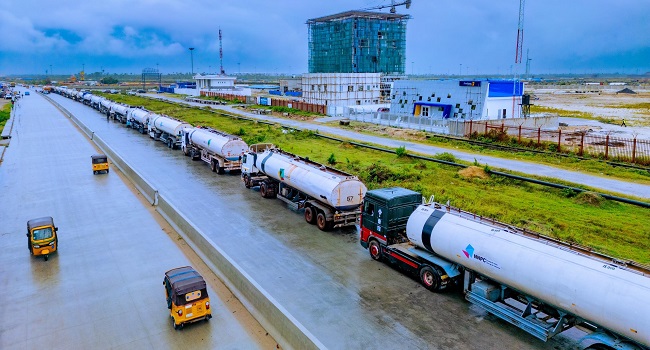By: Chioma Madonna Ndukwu
Scrap 5% Petroleum Tax Or Brace For Nationwide Strike: Nigeria’s TUC Warns FG
The Trade Union Congress of Nigeria (TUC) has issued a stern warning to the Federal Government, demanding the immediate withdrawal of its proposed five per cent tax on petroleum products. The union said the policy, if implemented, would deepen economic hardship across Nigeria and could trigger a nationwide strike.
In a statement released on Monday, signed by its President General, Festus Osifo, and Secretary General, N. A. Toro, the TUC described the plan as “reckless and anti-people,” accusing the government of pursuing policies that would suffocate struggling Nigerians.
According to the union, citizens are still battling the consequences of subsidy removal, soaring fuel prices, food inflation, and the free fall of the naira. Adding another levy on petroleum products, it warned, would cripple businesses, push more Nigerians into poverty, and worsen unemployment.
“The Federal Government cannot continue to use Nigerians as sacrificial lambs for its economic experiments,” the statement read. “Instead of offering relief, jobs, and real solutions, the government has chosen to squeeze citizens dry. Enough is enough.”
The TUC cautioned that if the tax plan is not scrapped in its entirety, it would mobilise workers, state councils, and affiliates across Nigeria for a “total nationwide resistance.” The union said strike action was already “firmly on the table,” stressing that the warning must not be ignored.
The Congress also called for solidarity from civil society organisations, professional associations, student groups, market unions, and faith leaders to resist what it described as “policies that mortgage the future of Nigerians.”
“Together, Nigerians must stand against measures that deliberately impoverish citizens. We deserve economic justice, not endless punishment,” the statement added.
As of Monday, the Federal Government had not publicly responded to the union’s position. However, analysts warn that if the TUC follows through on its threat, Nigeria could face fuel shortages, disruptions in economic activity, and a fresh wave of protests against the rising cost of living.


